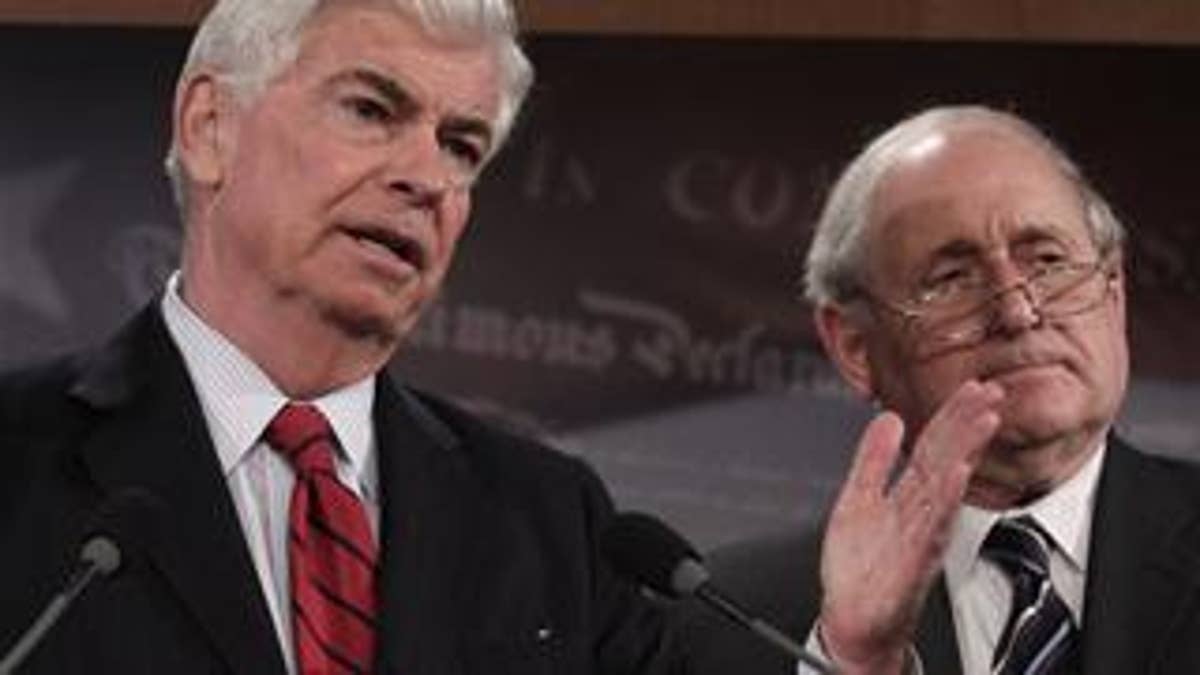
The House voted Wednesday to join the Senate in approving sweeping restrictions on the credit card industry, as well as an unrelated measure, which the House passed separately, to allow loaded guns in parks.
The House approved the credit card overhaul measures by a vote of 361-64. Those measures would enact new restrictions on the industry, including a requirement that customers penalized by higher interest rates because they missed a payment are given a chance to reclaim their lower rate after six months.
The other measure, to restore a Bush administration policy allowing loaded guns in national parks, had been pushed by conservative Sen. Tom Coburn, R-Okla., who persuaded the Senate to add it to its version of the credit card legislation.
The Senate bill put House Democrats in a tough spot, since they effectively were forced to vote against gun control Wednesday in order to avoid kicking the bill back to the other chamber again. (The House and Senate must approve the same bill.)
House Democrats, though, engineered a delicate legislative maneuver to extend anti-gun Democrats a chance to go on record against the amendment without torpedoing the overall bill. They did this by holding two votes: one for the credit card end of things, one for the firearms portion. This gave anti-gun members political cover by allowing them to vote against the gun measure and for the credit card bill.
But since the gun measure passed, by a vote of 279-147, it nevertheless gets attached to the main bill and becomes law if President Obama signs it. He is expected to do so Friday.
Despite objections from many Democrats over the firearms measure, 105 House Democrats voted in favor of it. On the Senate side, 27 Democrats voted to expand gun rights.
Among those who voted "yes" was Senate Majority Leader Harry Reid of Nevada, who had blocked Coburn's amendment from coming to the Senate floor for more than a year. Seven other Western Democrats voted with Reid to support the Republican senator's amendment, which allows a range of firearms in national parks and wildlife refuges as long as they are allowed by federal, state and local law.
Spokesman Jim Manley said Reid is a strong supporter of the Second Amendment, adding that the guns in parks issue was a major concern for many Nevadans.
Meanwhile, the credit card portion is aimed at addressing consumer concerns.
The new restrictions would protect debt-ridden consumers from many of the surprise charges common in the industry, like over-the-limit fees and a charge to pay the bill by phone.
Some of the changes, including a requirement that cardholders receive 45-days' notice before their rates are raised, are already on track to take effect in July 2010 under new regulations by the Federal Reserve.
But the legislation would put these changes into law and go further in restricting when and how banks charge people and who could get a card.
For example, the bill would require people under 21 to prove first that they can repay the money or that a parent or guardian is willing to pay off their debt if they default.
As banks scramble to make up for the lost revenue, cardholders who pay off their balance in full each month could also see annual fees become the norm and lucrative rewards programs canceled.
On the plus side for consumers, card holders who see their interest rate skyrocket because they have been late on a payment would get a chance at their older, lower rate if they pay their bill on time each month for six months.
FOX News' Chad Pergram and the Associated Press contributed to this report.











































